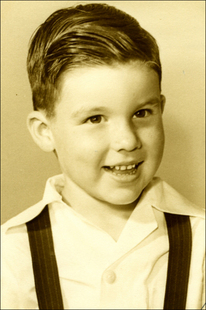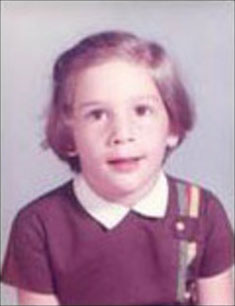| AGES 6-11 YEARS | ||
|---|---|---|
 | Chapter 2 YOUR CHILD’S DEVELOPMENT, AND HOW TO TALK WITH YOUR CHILD |  |
Children in middle childhood (ages 6-11) continue to grow in their mental abilities, physical abilities, use of language, self-control, friendships, and social skills. They are usually able to think logically and know the difference between fantasy and reality. They get better at problem-solving skills, show a longer attention span, become increasingly aware of time and the world around them, and learn to organize and plan.
Children in middle childhood typically become less and less attached to their parents. Preschool children may use blankets or teddy bears to soothe themselves when separated from their parents. But school-aged children begin to rely on their friends instead of focusing solely on their parents. This change in your child is a sign that your child is becoming more confident. This is a sign that you have done a good job as a parent, and so it should come as a relief. But the reality for parents is often the opposite. As children begin to grow and pull away from their parents, many parents feel unsure for themselves and their children. This is especially true if the child has had something like a DSD. As their children mature, parents may find themselves growing anxious, and they may try to limit their children’s activities to try to protect them. This can cause stress for the parent and the child. The important thing is for you to be aware of these changes in your child and yourself. If you have concerns about how you are coping, counseling resources can be of help. Talking with other parents can also help.
Friendships and relationships with peers (children of the same age) are very important to children at this stage. How they are viewed by their peers becomes more and more important to them. Children at this stage begin to form groups and define themselves through those groups. Many groups at this age are based on gender, and children get more messages about what counts as “appropriate” for boys and girls. Typically girls play with other girls and boys play with other boys during middle childhood, but this may not always be the case. Your child will choose to be with children he or she feels most comfortable with.
It is important to remember at all stages to be reassuring and supportive of your child’s gender identity expressions. And remember that what is normal for your child is normal for your child, even if it is not for others. Your child will benefit very much from your love and acceptance.
Middle childhood can be a difficult time for children. Children in this age group are more and more aware of how they are viewed by their peers. Much of their sense of self and self-esteem is shaped by how their peers see them. Some children have difficulty during middle childhood because they are not accepted or do not feel like they fit in with their peers. This can be a concern for all children regardless of whether or not there is something about them that makes them different from other kids in their age group.
How your child feels may not reflect how others are treating her. Some children feel a very strong sense of “being different,” even if others do not see them that way. In these cases, parents sometimes feel frustrated that no matter how much they try to support their children, the children do not seem to feel better about themselves. Again, it is important to be realistic about what you can do for your child. Remember that you cannot take away all of her discomfort or sadness, just as you cannot take away all of yours. If you feel like your child is suffering, reach out to try to get help from your child’s doctor, mental health professionals, and support groups. Try to create a network of support for your child, so that you are not struggling alone.

Many parents of children with DSD say that middle childhood and adolescence can be difficult because this is when the children really come to understand that they are different from the average. These parents suggest that you spend time being with your child and allowing him to talk about how he is feeling. It can also help to provide your child with access to a social worker, nurse, or counselor who can be an extra listener. Contact with other children who have similar conditions can also be beneficial to your child, as can contact with an adult with the same condition. Meeting an adult with the condition often gives a child a sense that he can “make it,” too. It also helps to provide your child with as much information about his condition and medical history as he requests. If you think he is afraid to ask for that information, you can ask him if he wants to learn more, and then follow his lead.
Your child might begin to ask questions about options for treatment or surgery during the latter part of middle childhood. At this stage in their development, children compare themselves to their peers. They may want to be more like other boys or girls and may become interested in ways to achieve this. Some parents of children with DSD begin to explore hormone treatments and surgical possibilities in the late years of middle childhood. As you talk with your child about these possibilities, it is important to listen carefully to her feelings and wishes, and it is important to start finding out with her the potential risks and benefits of medical options. For example:

If your child has had surgery already, it is a good idea to use this opportunity to talk with her about that surgery. Let her know when it happened and the basics of what happened. Invite her to ask more about it:
Let your child decide what should be covered in the conversation, and let her decide when the conversation is over. The next day, you might ask, “Is there anything else we didn’t talk about that you want to talk about now? Anything you want to go over again?” This helps your child know you are open to talking more.
As your child moves through middle childhood, she will start to be aware of sexual feelings she has towards others. As part of that, she will start figuring out her sexual orientation—whether she is attracted mostly to boys, to girls, or to both. Children do not “choose” to be straight, gay, or bisexual. They come to know these feelings in themselves little by little. Even children who feel straight often feel awkward about their sexual feelings. Children who feel gay or bisexual may feel doubly awkward, as they get the message from those around them that it is not okay.
If your child is feeling badly about being gay or bisexual, he may try to “make it up” to you by being extra good at school, sports, or family activities. He may also try to go along with medical care he thinks you want, because he feels guilty that he is gay or bisexual. If, at this stage, your child is making life-long medical decisions (like choosing to use sex hormones to guide puberty, or choosing to have genital surgery), it is very important that he make those decisions to change his body for his own sake, not simply to try to make you feel better, or in an attempt to fit in. If you’re at all unsure about why your child is making the decisions he is, offer him professional mental health support so he can sort out his feelings and his reasons. Try to let him know that you love and accept him as he is, and that you do not need him to change his body for you.
Often, starting a conversation about sex is one of the hardest things a parent ever does. Although it can be hard to talk with your child about sexuality, doing so will help her feel okay about herself, and it will help her make good choices. We’ve heard from adults with DSD that they sometimes made poor choices sexually, because they didn’t feel they could ask about their bodies or wanted to prove their desirability. For example, some girls with DSD knew they could not get pregnant, so they did not use a condom, and ended up exposing themselves to sexually-transmitted diseases during intercourse. You can start a conversation about sexuality like this:
If you have tried to talk to your child about sex, and find that you are much too embarrassed to manage it, make it possible for her to talk with another adult you trust to be honest and supportive. That may be a nurse or a doctor who your child feels comfortable with, or a family member or Godparent. Make sure that person knows what you and your child have talked about before, so she or he does not accidentally teach things about the DSD that you want your child to learn from you.
As your child grows up, let her know now and again that her body is her own, and that other people should not touch her in ways that make her feel uncomfortable or unsafe. Encourage her to tell you when she is feeling uncomfortable, unsafe, or violated. For instance, she should feel able to tell you this even if it happens during a genital exam, so you can ask the doctor to stop. Your child needs to feel in control of her own sexuality to feel healthy and happy in her life.
 |
© Accord Alliance a project of the Tides Center |
accordalliance.org |